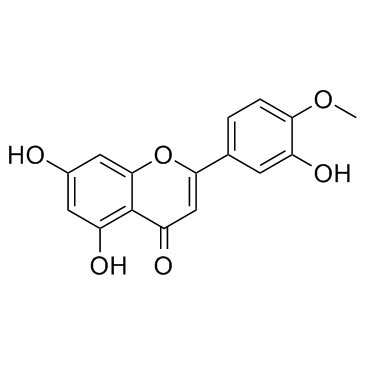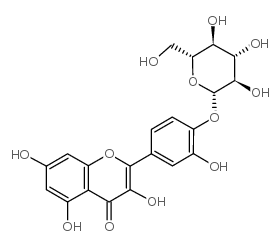| 结构式 | 名称/CAS号 | 全部文献 |
|---|---|---|
 |
香叶木素
CAS:520-34-3 |
|
 |
螺旋藻甙
CAS:20229-56-5 |
| 结构式 | 名称/CAS号 | 全部文献 |
|---|---|---|
 |
香叶木素
CAS:520-34-3 |
|
 |
螺旋藻甙
CAS:20229-56-5 |